
- print archive
- digital archive
- book review
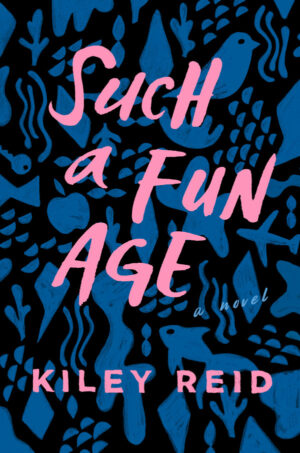

[types field='book-title'][/types] [types field='book-author'][/types]
Putnam, 2019
Contributor Bio
Chelsea bingham, more online by chelsea bingham.
- Beautiful World, Where Are You
- Normal People
- Certain American States
- Gravity Changes
Such a Fun Age
By kiley reid, reviewed by chelsea bingham.
Kiley Reid’s debut novel made a splash before being released, with advance praise coming from sources as varied as Jojo Moyes and Lena Waithe, Entertainment Weekly and The New York Times . In January, Such a Fun Age was the featured title for Reese Witherspoon’s monthly book club. Covering race, class, job insecurity, and gender politics, this book has resonated with a large cross section of readers. Now, as protests against police violence and institutional racism take place all over the world, ignited by the murders of Black Americans including George Floyd, Breonna Taylor, and Ahmaud Arbery, the relevance of this book cannot be overstated. Reid has constructed a complex tale of twenty-first-century millennial life that scrutinizes racism in America today.
The novel opens in 2015, when Hillary Clinton is running for president. Alix Chamberlain is a white, older millennial woman with two children living in New York and running a business that she started at the height of the blogger era. The business, “LetHer Speak,” promotes female empowerment through letter writing. Participating in a discussion panel on reproductive care and empowering books for girls, Alix breastfeeds her two-year-old daughter throughout. She is the only female panelist, and a recording of the event goes viral. As her career begins to take off, Alix gives in to her husband Peter’s wish to move to Philadelphia, though she pretends on social media that she is still in New York City—the first indication of her intense concern with how she appears to others. Needing a new babysitter, Alix logs on to sittercity.com and chooses a profile with no picture. “Huh,” she thinks, when Emira Tucker shows up on her doorstep: Emira is Black.
Soon after Emira begins working for the Chamberlains, Alix calls her late at night with an offer to pay her double if she can come get her daughter Briar and keep her busy at a nearby grocery store. She omits to mention the reason for this request: the Chamberlains’ house has been vandalized after Peter, a news anchor, made a racist comment on air, and they want Briar out of the way while they talk to the police. After explaining that she’s at a club for a friend’s birthday, Emira decides it’s worth the extra money to make the trek. “ Oh god … does she know what Peter said? ” Alix wonders, as soon as Emira arrives at her house. Ashamed of her previous thoughtlessness, she resolves to “wake the fuck up. [ … ] To get to know Emira Tucker.”
While Alix is making this resolution, Emira is dancing with Briar to Whitney Houston in the grocery store. A security guard approaches Emira and asks, “Is this your child?” The guard goes on to accuse her of having kidnapped Briar, backed up by a middle-aged woman who says, “I’m a mom. And I heard the little girl say that she’s not with her mom, and since it’s so late I got a little nervous.” The security guard refuses to speak to Emira and asks Briar questions instead, repeatedly deferring to a white three-year-old child over a Black twenty-five-year-old adult. A young white man films the encounter on his cell phone and waits for Emira outside the grocery store. When he recommends she send it to a local news station, or try to get the security guard fired, she tells him to delete the video. He agrees to do so, but convinces her to let him email it to her first, a decision that has unforeseen consequences for everyone involved.
The grocery store incident reinforces Alix’s resolve to get to know her nanny, but for Emira it’s just another sign that she needs a real job, one that provides health care and paid vacation. Alix’s attempts to befriend Emira to assuage her white guilt meet with little success: beyond a shared love for Briar, the two women have nothing in common. Reid alternates chapters describing Alix’s and Emira’s day-to-day lives as Emira continues to work for the family and as they navigate the fallout from the grocery store incident. For Emira, that means putting the incident in the past and moving on with her life, while Alix obsesses over how things could have gone differently and tries desperately to find out what Emira thinks of her, even going so far as to look at the younger woman’s phone. For Alix, Emira is a mirror in which she hopes to see herself as the progressive, feminist woman that readers of her blog believe her to be. The novel’s plot is catalyzed by overt racism, but a stronger presence is Reid’s nuanced exploration of microaggressions, unconscious bias, and ignorance, carried out most often in the novel by educated white people who believe they have good intentions.
Reid has a light touch, and she excels at using small details to convey character: the woman who papier-mâchés the toilet seat with toilet paper at the airport, lugging Vera Bradley luggage and clad in Lilly Pulitzer; the house guest who brings a gift of not one but two pairs of what she hopes will become her host’s “good scissors”; the twenty-something who announces that she’s going to take a nap on the club floor. With its memorable characters and sharp portrayal of millennial life, the novel feels in some ways like it was written for the screen. But the novel is also filled with complicated ideas. Reid’s straightforward prose and sharp eye for social satire allow her to demonstrate clearly how race and privilege are inseparable from the way we structure our sense of self and our relationships with others. Such a Fun Age deserves a place on every reading list this summer.
Published on August 4, 2020
Like what you've read? Share it!
- Skip to main content
- Keyboard shortcuts for audio player
Book Reviews
'such a fun age' is a complex, layered page-turner.
Ilana Masad

Such a Fun Age
Buy featured book.
Your purchase helps support NPR programming. How?
- Independent Bookstores
The title of Kiley Reid's debut, Such a Fun Age , works on so many levels it makes me giddy — and, what's better, the title's plurality of meaning is echoed all over the place within the novel, where both plot and dialogue are layered with history, prejudice, expectations, and assumptions. The title's "fun age" might refer to one of the two main characters, Emira Tucker, a 25-year-old black woman who keenly feels that working part-time as a babysitter and part-time as a typist doesn't count as true adulting. It might refer to her charge, Briar, a white three-year-old whose imagination and speech patterns are so charmingly true to a particular kind of kid that she's both instantly recognizable and entirely her own person.
More broadly, the "fun age" might be our own, prior to the 2016 election — an age that was considered by some to be magically post-racist and post-sexist because it was impolite to be these things in public; an age of performative white feminism; an age of social media and virality and armchair activism and online virtue-signaling that ironically requires certain people — often, those already more vulnerable — to exist in specific politically correct ways while letting others — usually, those with power and privilege — off the hook. Don't let all these layers put you off — the wonder of Such a Fun Age is that it is also a page-turner with beautifully drawn characters and a riveting plot.
Author Interviews
Kiley reid on 'such a fun age'.

A Daughter Becomes An Accomplice To Her Mother's Affair In 'Wild Game'
In the book's opening chapter, Emira is called away from a friend's birthday party by Alix ("uh- leeks ") Chamberlain, whose two daughters, Briar and infant Catherine, she babysits for several times a week. Someone has thrown an egg at the Chamberlain house, hard enough to shatter a window, and Alix wants Briar out of the house when the police arrive. Emira, both somewhat tired of the party and in need of the extra cash, takes Briar to a grocery store in the Chamberlains' neighborhood, her friend Zara tagging along. She, Emira, and Briar have an impromptu dance party in the frozen foods aisle, as one occasionally will when a toddler is around, before Zara heads off for a hookup.
The lovely, upbeat scene collapses when a security guard approaches and starts interrogating Emira because a white woman, who only moments before was congenially laughing at the dancing trio, was concerned to see a black woman with a white child out so late. "We just came here to look at nuts. Well, we don't touch them or anything. We're just... we're really into nuts right now, so... yeah," Emira tells the guard, but the situation escalates to the point where a white man starts capturing the verbal altercation with his phone ("Can you step off?" Emira asks him; "I think you're gonna want this filmed," he says.) and Emira has to call Peter Chamberlain to come and reassure the guard. "He's an old white guy," she says, "so I'm sure everyone will feel better." She's right; they do.
Over the course of the following months, the tensions between Emira and the Chamberlains rise due to several factors that have very little to do with Emira herself. Alix, the novel's other main character — and foil, and sometimes antagonist — is a semi-successful businesswoman who has made a career out of writing letters requesting free stuff from companies and getting what she asks for. She also breastfed Briar while speaking at a panel once, an act of have-it-all-feminism that garnered lots of attention. What happened to Emira at the store has Alix consumed with (white) guilt, especially since the egg thrown through the window came with a cry of "racist," aimed at Peter, a news anchor, who said, during a feel-good human interest segment earlier that night, that he hoped a black boy taking a white girl to Homecoming had "asked her father first."
Emira and Alix have as much distance between them in terms of class as race. Emira comes from a working class family of driven, creative people, which is part of why she feels especially weird that she isn't ambitious in a particular direction. Alix's parents became very suddenly wealthy when she was a teenager, inducting her into a nouveau riche lifestyle she had no idea how to handle and which she is still uncomfortable with, despite having leaned further and further into upper-middle class affluence over the years. But what the two women do share — not in the way you'd expect — is Kelley Copeland, the tall, handsome, and seemingly woke white guy who thought Emira would want her encounter filmed.
To share more of the plot would be to spoil the fun, as it were. This is a book that will read, I suspect, quite differently to various audiences — funny to some, deeply uncomfortable and shamefully recognizable to others — but whatever the experience, I urge you to read Such a Fun Age . Let its empathic approach to even the ickiest characters stir you, allow yourself to share Emira's millennial anxieties about adulting, take joy in the innocence of Briar's still-unmarred personhood, and rejoice that Kiley Reid is only just getting started.
Ilana Masad is an Israeli-American fiction writer, critic, and founder/host of the podcast The Other Stories . Her debut novel, All My Mother's Lovers , is forthcoming from Dutton in 2020.
- ADMIN AREA MY BOOKSHELF MY DASHBOARD MY PROFILE SIGN OUT SIGN IN
Awards & Accolades
Our Verdict
Kirkus Reviews' Best Books Of 2020
New York Times Bestseller
IndieBound Bestseller

SUCH A FUN AGE
by Kiley Reid ‧ RELEASE DATE: Jan. 7, 2020
Charming, challenging, and so interesting you can hardly put it down.
The relationship between a privileged White mom and her Black babysitter is strained by race-related complications.
Blogger/role model/inspirational speaker Alix Chamberlain is none too happy about moving from Manhattan to Philadelphia for her husband Peter's job as a TV newscaster. With no friends or in-laws around to help out with her almost-3-year-old, Briar, and infant, Catherine, she’ll never get anywhere on the book she’s writing unless she hires a sitter. She strikes gold when she finds Emira Tucker. Twenty-five-year-old Emira’s family and friends expect her to get going on a career, but outside the fact that she’s about to get kicked off her parents’ health insurance, she’s happy with her part-time gigs—and Briar is her "favorite little human." Then one day a double-header of racist events topples the apple cart—Emira is stopped by a security guard who thinks she's kidnapped Briar, and when Peter's program shows a segment on the unusual ways teenagers ask their dates to the prom, he blurts out "Let's hope that last one asked her father first" about a Black boy hoping to go with a White girl. Alix’s combination of awkwardness and obsession with regard to Emira spins out of control and then is complicated by the reappearance of someone from her past (coincidence alert), where lies yet another racist event. Reid’s debut sparkles with sharp observations and perfect details—food, décor, clothes, social media, etc.—and she’s a dialogue genius, effortlessly incorporating toddler-ese, witty boyfriend–speak, and African American Vernacular English. For about two-thirds of the book, her evenhandedness with her varied cast of characters is impressive, but there’s a point at which any possible empathy for Alix disappears. Not only is she shallow, entitled, unknowingly racist, and a bad mother, but she has not progressed one millimeter since high school, and even then she was worse than we thought. Maybe this was intentional, but it does make things—ha ha—very black and white.
Pub Date: Jan. 7, 2020
ISBN: 978-0-525-54190-5
Page Count: 320
Publisher: Putnam
Review Posted Online: Oct. 13, 2019
Kirkus Reviews Issue: Nov. 1, 2019
LITERARY FICTION
Share your opinion of this book
More by Kiley Reid

BOOK REVIEW
by Kiley Reid
More About This Book

SEEN & HEARD

THE SECRET HISTORY
by Donna Tartt ‧ RELEASE DATE: Sept. 16, 1992
The Brat Pack meets The Bacchae in this precious, way-too-long, and utterly unsuspenseful town-and-gown murder tale. A bunch of ever-so-mandarin college kids in a small Vermont school are the eager epigones of an aloof classics professor, and in their exclusivity and snobbishness and eagerness to please their teacher, they are moved to try to enact Dionysian frenzies in the woods. During the only one that actually comes off, a local farmer happens upon them—and they kill him. But the death isn't ruled a murder—and might never have been if one of the gang—a cadging sybarite named Bunny Corcoran—hadn't shown signs of cracking under the secret's weight. And so he too is dispatched. The narrator, a blank-slate Californian named Richard Pepen chronicles the coverup. But if you're thinking remorse-drama, conscience masque, or even semi-trashy who'll-break-first? page-turner, forget it: This is a straight gee-whiz, first-to-have-ever-noticed college novel—"Hampden College, as a body, was always strangely prone to hysteria. Whether from isolation, malice, or simple boredom, people there were far more credulous and excitable than educated people are generally thought to be, and this hermetic, overheated atmosphere made it a thriving black petri dish of melodrama and distortion." First-novelist Tartt goes muzzy when she has to describe human confrontations (the murder, or sex, or even the ping-ponging of fear), and is much more comfortable in transcribing aimless dorm-room paranoia or the TV shows that the malefactors anesthetize themselves with as fate ticks down. By telegraphing the murders, Tartt wants us to be continually horrified at these kids—while inviting us to semi-enjoy their manneristic fetishes and refined tastes. This ersatz-Fitzgerald mix of moralizing and mirror-looking (Jay McInerney shook and poured the shaker first) is very 80's—and in Tartt's strenuous version already seems dated, formulaic. Les Nerds du Mal—and about as deep (if not nearly as involving) as a TV movie.
Pub Date: Sept. 16, 1992
ISBN: 1400031702
Page Count: 592
Publisher: Knopf
Review Posted Online: May 19, 2010
Kirkus Reviews Issue: July 1, 1992
More by Donna Tartt

by Donna Tartt

Kirkus Reviews' Best Books Of 2019
NORMAL PEOPLE
by Sally Rooney ‧ RELEASE DATE: April 16, 2019
Absolutely enthralling. Read it.
A young Irish couple gets together, splits up, gets together, splits up—sorry, can't tell you how it ends!
Irish writer Rooney has made a trans-Atlantic splash since publishing her first novel, Conversations With Friends , in 2017. Her second has already won the Costa Novel Award, among other honors, since it was published in Ireland and Britain last year. In outline it's a simple story, but Rooney tells it with bravura intelligence, wit, and delicacy. Connell Waldron and Marianne Sheridan are classmates in the small Irish town of Carricklea, where his mother works for her family as a cleaner. It's 2011, after the financial crisis, which hovers around the edges of the book like a ghost. Connell is popular in school, good at soccer, and nice; Marianne is strange and friendless. They're the smartest kids in their class, and they forge an intimacy when Connell picks his mother up from Marianne's house. Soon they're having sex, but Connell doesn't want anyone to know and Marianne doesn't mind; either she really doesn't care, or it's all she thinks she deserves. Or both. Though one time when she's forced into a social situation with some of their classmates, she briefly fantasizes about what would happen if she revealed their connection: "How much terrifying and bewildering status would accrue to her in this one moment, how destabilising it would be, how destructive." When they both move to Dublin for Trinity College, their positions are swapped: Marianne now seems electric and in-demand while Connell feels adrift in this unfamiliar environment. Rooney's genius lies in her ability to track her characters' subtle shifts in power, both within themselves and in relation to each other, and the ways they do and don't know each other; they both feel most like themselves when they're together, but they still have disastrous failures of communication. "Sorry about last night," Marianne says to Connell in February 2012. Then Rooney elaborates: "She tries to pronounce this in a way that communicates several things: apology, painful embarrassment, some additional pained embarrassment that serves to ironise and dilute the painful kind, a sense that she knows she will be forgiven or is already, a desire not to 'make a big deal.' " Then: "Forget about it, he says." Rooney precisely articulates everything that's going on below the surface; there's humor and insight here as well as the pleasure of getting to know two prickly, complicated people as they try to figure out who they are and who they want to become.
Pub Date: April 16, 2019
ISBN: 978-1-984-82217-8
Page Count: 288
Publisher: Hogarth
Review Posted Online: Feb. 17, 2019
Kirkus Reviews Issue: March 1, 2019
More by Sally Rooney

by Sally Rooney

PERSPECTIVES

BOOK TO SCREEN
- Discover Books Fiction Thriller & Suspense Mystery & Detective Romance Science Fiction & Fantasy Nonfiction Biography & Memoir Teens & Young Adult Children's
- News & Features Bestsellers Book Lists Profiles Perspectives Awards Seen & Heard Book to Screen Kirkus TV videos In the News
- Kirkus Prize Winners & Finalists About the Kirkus Prize Kirkus Prize Judges
- Magazine Current Issue All Issues Manage My Subscription Subscribe
- Writers’ Center Hire a Professional Book Editor Get Your Book Reviewed Advertise Your Book Launch a Pro Connect Author Page Learn About The Book Industry
- More Kirkus Diversity Collections Kirkus Pro Connect My Account/Login
- About Kirkus History Our Team Contest FAQ Press Center Info For Publishers
- Privacy Policy
- Terms & Conditions
- Reprints, Permission & Excerpting Policy
© Copyright 2024 Kirkus Media LLC. All Rights Reserved.
Popular in this Genre
Hey there, book lover.
We’re glad you found a book that interests you!
Please select an existing bookshelf
Create a new bookshelf.
We can’t wait for you to join Kirkus!
Please sign up to continue.
It’s free and takes less than 10 seconds!
Already have an account? Log in.
Trouble signing in? Retrieve credentials.
Almost there!
- Industry Professional
Welcome Back!
Sign in using your Kirkus account
Contact us: 1-800-316-9361 or email [email protected].
Don’t fret. We’ll find you.
Magazine Subscribers ( How to Find Your Reader Number )
If You’ve Purchased Author Services
Don’t have an account yet? Sign Up.

Kiley Reid’s ‘Such a Fun Age’ Is a Lesson in White Privilege—Without Feeling Like One
If you didn't cringe during certain scenes, you missed the point.
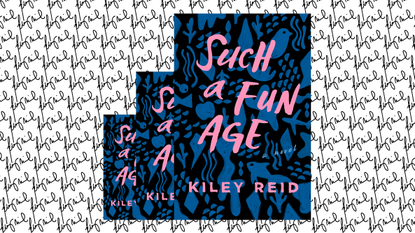
Kiley Reid's Such a Fun Age is one of those books that you have to tell yourself to stop reading because it's 1 a.m. and you have to be up for work in six hours. (Just me?) Reid's buzzy debut, which happened to be both Marie Claire and Reese Witherspoon 's January book club pick, is a refreshing wake-up call about white privilege—one that you don't even realize you're receiving at first. And that's the point.
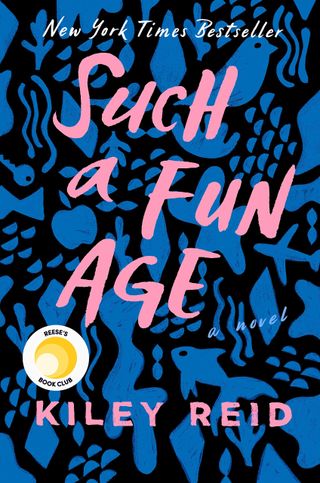
The novel begins with an uncomfortable—and all-too-familiar—scene when 25-year-old Emira, a Black woman, is accused of kidnapping Briar, the white toddler she is babysitting, in a grocery store late at night. From there, we receive the alternating perspectives of Emira and Alix Chamberlain, Briar's insecure mother who has mastered the art of cringe-worthy small talk and possesses a warped sense of self-awareness.
Overall, the #ReadWithMC community was obsessed with the book, including the smaller plot points Reid brilliantly weaved throughout the novel, though there was a bit of disappointment with the ending—a clear sign that the book warranted a thorough analysis all the way through the last page. (It's also worthy of a film adaptation—Lena Waithe's production company acquired the rights to it more than a year before the book's official release date.)
See exactly why Such a Fun Age is a must-read, below.
"There aren’t words to describe how much I loved Such a Fun Age . It is so light and airy, although it touches on issues of racism and being an ally so well. While I will definitely say that some of the characters are more easily able to learn from challenges thrown their way than others, I appreciate the fact that Reid didn’t wrap up the story with a pretty bow and call it a happy ending with rainbows and sparkles. I loved the amicable dialogue that Briar exhibits throughout the story and how freely she interrupts conversations among the adults she is speaking to. Although if you are easily annoyed by children, this may not be the book for you. Reid also seamlessly weaves arguments from both Emira and Alix’s perspectives, challenging the reader to sympathize with both characters. This is a fun yet thought-provoking read that I recommend you pick up sometime soon!" —@sfbookgirl
A post shared by Ciera @sfbookgirl (@sfbookgirl) A photo posted by on
"I didn’t think I would enjoy Such a Fun Age since it’s not something I usually read, but the writing flowed so well that I just breezed through the book! Such a Fun Age is about two very different women, Emira Tucker—a babysitter—and her boss, Alix Chamberlain. While Emira is a 25-year-old college graduate who has no idea what she wants to do with her life, Alix is a successful blogger with a seemingly perfect life. But then Emira is confronted by a security guard at a fancy grocery store and accused of kidnapping Briar—Alix’s child—everything changes.
The novel is an interesting look at themes of racism, motherhood, privilege, and growth. It shows how sometimes when we overstep and the more we try to help, the worse we make things. I liked how it wasn’t overly serious, but the themes were handled well and integrated into the story for us to realize rather than be forced upon us. The characterization was great, which is why I found the ending so disappointing. I think Emira’s growth and arc deserved a better conclusion and the ending just completely ruined Alix’s character for me. But overall it’s still a fun and enjoyable read, and one I wasn’t expecting to like so much." —@teacupbooks_
Stay In The Know
Get exclusive access to fashion and beauty trends, hot-off-the-press celebrity news, and more.
A post shared by •Ven🇲🇨• (@teacupbooks_) A photo posted by on
"Fantastic and thought-provoking novel about class, privilege, race, and consent. Reid is really great about articulating a lot of truths in a very honest and relatable way. There were definitely characters I loved to hate and many cringeworthy moments, but it felt very REAL. I loved how Emira, the main character, is figuring out life as many 25 year olds do. The struggle is real. Health insurance needs are real. And trying to figure out who is a friend and foe is real. This would be a great book club book because it is so layered and has so many elements to discuss. Mostly, I loved Emira. I was rooting for her and her big heart. Wonderful debut by Kiley Reid. I was able to hear her speak and she is so engaging that it’s no surprise she can write such a page-turner. It was also fun to #readwithmc and read with #reesesbookclub this month!" —@readtotheend
A post shared by Caroline // readtotheend (@readtotheend) A photo posted by on
"I finished Such A Fun Age days ago, and I'm still thinking about it. It's so rare to find a book that has strong, nuanced female characters—and don't fall into a stereotype of hero or villain. Alix and Emira are carefully written to be neither 'good' nor 'bad,' 'right' nor 'wrong,' or defined only by the one traumatic event that happens to each of them in this novel. And Briar and Zara were two of the most endearing characters I've read in a while." —@jennyhollander
A post shared by Marie Claire (@marieclairemag) A photo posted by on
" Such a Fun Age by Kiley Reid is Such A Fun Read! (Sorry!) But really, it is! It’s about a 20-something who babysits for a woman in Philly, and it’s got such smart things to say about race, class, and modern love. You’ll def see this one being passed around among your bookish friends all year looooong." —@julievadnal
A post shared by Julie Vadnal (@julievadnal) A photo posted by on
"I have been seeing this book everywhere! The cover is gorgeous and hard to miss, so I was immediately interested in seeing what this book is all about. Let me tell you a few reasons I loved this book: It is timely and relatable, it was incredibly well written, the character development was outstanding, and the audio book was so well done. I was immediately sucked into this story. This is the kind of story that really forces you to reflect and think about your own actions and how they can affect others." —@jaylamm.reads
A post shared by Julia (@jaylamm.reads) A photo posted by on
"I have seen a lot of buzz about this book, and I was intrigued. It is a hard one to review, and I was left with conflicted feelings. I can tell you the audio was entertaining, and I can see why this has been called a 'compulsively readable' book.
The story begins with a racially-charged scene in a grocery store that was well-written and piqued my interest. As the story went on, I became more disappointed in the characters. Alix was very unlikeable and had very few redeeming qualities. I was appalled by several of her choices. That being said, I wasn’t a large fan of Emira’s character either, but she did show a little more growth as a person towards the end. I would love to have seen more character development and depth with both characters. I wish we would have gotten to know Emira’s backstory a little more as well as her outside of her role as a sitter. It is also hard for me when I don’t relate to any of the characters in the book.
My favorite moments of the book were with the toddler, Briar. She was cute and made me laugh (her voice is a little weird on audio, but it is an adult doing a child’s voice). I think this book tries hard to shed light on issues such as class, race, and white saviorism. But, ultimately, I wanted more from this book and these characters. I felt that the story lacked any major resolution, and the characters didn’t seem to grow from their experiences or as individuals. I am glad I read this book, but walking away I don’t think it is one that will stick with me or one I would read again. —@wordswithrach
A post shared by @wordswithrach A photo posted by on
"I ate up Such a Fun Age . It’s so thought-provoking but doesn’t feel like homework. I love the way it caused me to take a hard look at my own life/actions/biases without making me feel judged. Reid does an excellent job of presenting varying perspectives and truths objectively—no preaching here. It’s fun but not frivolous, smart but not heavy. Such a great book to start the year with." —@danismcnally
"This is a book that opens with a public racial encounter when Emira Tucker, babysitter of Briar Chamberlain, is questioned and detained because a security guard isn’t convinced Briar hasn’t been kidnapped. The altercation was caught on film by another patron at the market and the events that follow will change Emira’s life forever.
I truly had such high hopes for this one. I knew coming from a very privileged background myself, it was going to challenge me. I just knew I was in for some conviction and would learn. But, in the end, I found this book to be more about gossip and revenge than about addressing real racial issues that we face daily whether my white eyes see it or not. Don’t get me wrong, there were parts I liked...the relationship between Emira and Briar was just about perfect. However, many of the characters were lacking in development, making their storylines almost seem pointless. I just wanted MORE. That said, I think there were many takeaways from this book, just wish it hadn’t left me feeling like there was something missing. Overall, I still think it’s a story that needs to be heard and therefore I give it three-a-half stars." —@paperbacksandpeonies
A post shared by morgan 💕 paperbacks & peonies (@paperbacksandpeonies) A photo posted by on
"What a RIDE. I’m hesitant to share too much about the plot because what I loved most about this book was the unexpected. Such a Fun Age is a much-hyped debut novel from Kiley Reid, and it’s definitely going to be *the* book club book of 2020. It’s extremely readable and plot-forward while tackling things like race, class, and privilege in smart, engaging ways. I also loved the portrayal of the early/mid-twenties, and Emira’s friend group felt so authentic and lovely.
I recommend you read it without knowing much about it, but if you want my thoughts/have already read it, here goes: Kiley Reid is telling liberal white people about ourselves. I saw myself reflected in Alix and Kelley in ways that made me uncomfortable, but I think are really valuable. She perfectly portrays how obsessed white people can be with black people while still maintaining white superiority. Alix is obsessed with Emira, making sure she doesn’t think she’s racist, meanwhile she expects Emira to think she’s incredible just by nature being a rich white woman. Reid also covers Tokenism with Tamra’s character, and SO much white exceptionalism when we white people think, I’m not racist like that white person over there. Kelley and Alix both do this, but completely deny Emira her own agency (though you could argue who does it more, I guess). The scene at the restaurant next to Kelley’s work! Damn. Super fascinating, well done book." —@allisonreadsdc
A post shared by Allison (@allisonreadsdc) A photo posted by on
"#SuchAFunAge was my most anticipated book of the year and let me tell you, it did not disappoint. What a beautiful, insightful, and thought-provoking work of fiction. And to think that this is only Kiley Reid’s debut?! I fell in love right from the first page. The characters and friendships portrayed are so real and authentic, I felt like I was experiencing the situations first-hand. I laughed, I got angry. My emotions were taken on a journey from the start until the end.
The themes dealt with are incredibly important and it's amazing to see themes such as race, privilege, and white saviorism dealt with with such nuance. The writing style kept me engaged throughout and it was all in all such a fresh read despite the serious themes listed above." —@bookcoffeeandfun
A post shared by Claire (@bookcoffeeandfun) A photo posted by on
Missed out on our January book club pick? In February, we'll be reading Megan Angelo's debut novel, Followers . Learn more about the book and read an exclusive interview with the author here .
For more stories like this, including celebrity news, beauty and fashion advice, savvy political commentary, and fascinating features, sign up for the Marie Claire newsletter.
subscribe here
RELATED STORY
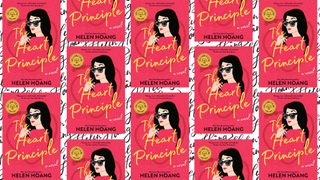
How to Join Marie Claire's Virtual Book Club
Rachel Epstein is a writer, editor, and content strategist based in New York City. Most recently, she was the Managing Editor at Coveteur, where she oversaw the site’s day-to-day editorial operations. Previously, she was an editor at Marie Claire , where she wrote and edited culture, politics, and lifestyle stories ranging from op-eds to profiles to ambitious packages. She also launched and managed the site’s virtual book club, #ReadWithMC. Offline, she’s likely watching a Heat game or finding a new coffee shop.

Of course she pulled it off.
By Danielle Campoamor Last updated 25 November 24

"I thought so too way back when."
By Danielle Campoamor Published 24 November 24

The royal skipped this year's Variety performance because she “didn’t want to spoil anyone else’s enjoyment with her cough.”
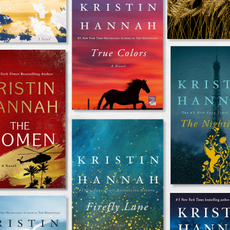
Get your tissues ready.
By Nicole Briese Published 29 October 24
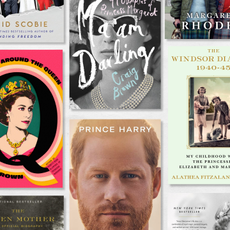
They have more shocking revelations and juicy secrets than you saw on 'The Crown.'
By Andrea Park Published 24 October 24
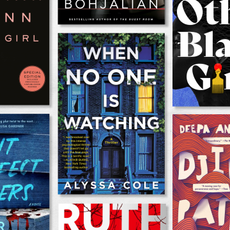
As soon as you feel a chill in the air, you'll want to curl up with one of these page-turners.
By Andrea Park Published 25 September 24
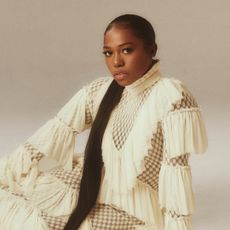
The actress built a "con-gregation" with her popular podcast, and now she's expanding it with a new book.
By Quinci LeGardye Published 12 September 24

The self-help book born out of 'Sex and the City' sparked a break-up revolution and became a pop culture phenomenon.
By Liz Doupnik Published 4 September 24
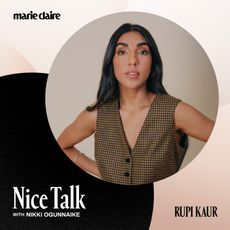
The best-selling author and poet spoke to editor-in-chief Nikki Ogunnaike for the 'Marie Claire' podcast "Nice Talk."
By Sadie Bell Published 22 August 24
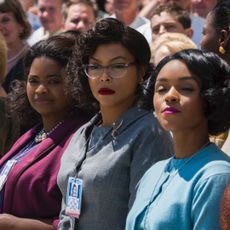
Consider your to-read list and your watch list full.
By Andrea Park Published 19 August 24
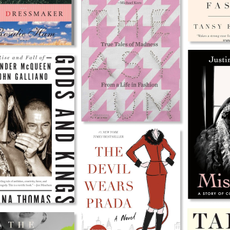
From nonfiction deep dives about brands to memoirs by style icons.
By Andrea Park Published 31 July 24
- Contact Future's experts
- Advertise Online
- Terms and conditions
- Privacy policy
- Cookies policy
Marie Claire is part of Future plc, an international media group and leading digital publisher. Visit our corporate site . © Future US, Inc. Full 7th Floor, 130 West 42nd Street, New York, NY 10036.
How Fun, Really?: A Review of Kiley Reid’s ‘Such a Fun Age’

Every writer has her flaw. Bad dialogue is not a forgiving foible. And yet literary history is riddled with examples—the ones who got away with it, the ones who didn’t, and the ones who, either way, remain in the literary canon. Exhibit A: H.P. Lovecraft. Every aspiring novelist and storytelling cadet knows that the dialogue exchanges of the magniloquent vocabularian are a classroom example of what not to do. Set aside the fact that the spoiled New Englander was an only child, set aside the racist dogma suffusing his plots, set aside his flagrant classism—“I could not write about ‘ordinary people’ because I am not in the least interested in them”—the poor guy never quite figured out how to sound like normal people. The result was, as he himself would put it, “hideous.”
For all the reasons Zadok Allen never amounts to anything more than a paper-thin cypher, Kiley Reid’s Such a Fun Age (G. P. Putnam’s Sons, 2019) excels in her believable and heart-wrenching deep-dive into U.S. race relations and the (not-so) subtle racial profiling that Black Americans suffer on almost every stratum—from the grocery store to the workplace. Such a Fun Age contributes not to the field of blatant micro aggressions—though these feature prominently in Reid’s narrative and indeed catalyze the sequence of unfolding events—but in the most private of hemispheres, a place where discussions of racism are awkwardly eschewed. Reid confidently addresses the gross and painful racism that manifests in our ostensibly pure personal relationships. Reid’s aptitude for triggering awkward dinner table conversations may be a turn-off for some readers, but I think most will find the book an inimitable hit.
Such a Fun Age centers Emira Tucker, a recent college Temple University graduate who, like most recent college grads (me, included), finds herself with vague career plans and limited means to go soul-searching. She opts for babysitting the two-year-old daughter of a wealthy family from New York City—need I say, white?—that pays her sixteen dollars an hour. The arrangement is only satisfactory for Emira, who secretly pines for “a real job, a nine-to-five position with benefits and decent pay,” which she insists will make the rest of her life “start to resemble adulthood as well.” Like most hourly wage workers, she is forced to take on many last-minute gigs, including one on her best friend’s birthday. This is where the mess takes off.
One night, Alix Chamberlain, thirty-one year-old non-profit founder, calls Emira to ask if she can look after her daughter, Briar, for a few hours while she and her husband attend to an “incident with a broken window.” Unbeknownst to Emira, the “incident” traces back to the week before when Alix’s husband, Peter, in his role as anchor for the Philadelphia Action News, introduced a segment on homecoming proposals. Reacting to a video of a black teen proposing to a white girl, he gaffes, “Let’s hope that last one asked her father first.”
Alix spends the duration of the novel fretting over whether Emira has seen the clip, but it appears she has bigger fish to fry. That night, Emira and her friend Zara take Briar to the local Market Depot, a grocery store catering to the upper-class neighborhood with organic foods and other overpriced items. “Next to a dried-fruit section, Zara bent in her heels and held her dress down to retrieve a box of yogurt-covered raisins. ‘Umm… eight dollars ?’”
The scene reaches a blistering tenor when a security guard approaches Emira to ask, “Is this your child?” For the next few minutes, he hectors her with a salvo of questions, apparently in disbelief that Emira is a babysitter. An onlooker, “nervous” for Briar’s safety, shortly steps in to interrogate Emira, as well. The exchange only defuses once Emira calls Peter—“He’s an old white guy so I’m sure everyone will feel better.” For the remainder of the book, a bad taste lingers in the air. Scant mention of race is made ever again and yet, informed by the first scene, we are painfully aware of how outward appearances can determine the course of every and any interaction.
On my first reading, I was enthralled by the exhilarating drama that Reid weaves. The story bears the feel of a soap opera and yet the themes it explores are undeniably poignant. The result is an unsettling mixture of comedy and exposé, propelled by spectacular dialogue that makes a read-aloud irresistible. It’s no wonder that Lena Waithe’s Hillman Grad Productions and Sight Unseen Productions snapped up the film and television rights to this novel within months of its completion.
On my second reading, I was reminded of The Help by Kathryn Stockett, the 2009 novel adapted into an award-winning film with a star-studded cast including Octavia Spencer, Emma Stone, and Viola Davis. Stockett’s novel captures—inaccurately, some have argued—the lives of African-American housekeepers in Jackson, Mississippi, at the tail end of Jim Crow segregation. Like Reid, she follows a cast of many characters, including two housekeepers, Aibileen Clark and Minny Jackson. Along with ten other nannies, they recount their experiences of workplace discrimination to Eugenia Skeeter, a sympathetic and liberal-minded white woman who sees publishing potential in the untold stories of “the help.” Stockett, like Reid, attempts to replicate the dialectal differences between the housekeepers and the white women of the town, imbuing each character with their own unique voice. (Critics have argued that Stockett’s novel defeats its own purpose, i.e., to bring African-American voices to the fore.) Reid’s novel might be thought of as a re-writing of The Help , modernized and re-claimed. It presents the voices of twenty-first century African-American women spoken by a twenty-first century African-American writer.
As I think about the similarities between the two novels, I can’t help but feel at first exhilarated—could this be an undisclosed influence on Reid’s novel?—and then unnerved—how much progress have we really made as a society? Let’s consider an obvious parallel. Both novels involve black women in uniform working for white women at hourly rates (no benefits). The differences, of course, are equally striking. Reid diverges by revealing how discrimination can manifest in more subliminal ways. Through Emira’s interactions with Kelley—her woke white boyfriend—and Alix, we learn how fetishization is in itself a form of racial bias. Despite all their differences, Alix and Kelley share the same objective: remain on good terms with Emira. Rather than treat her with the respect of a friend, they counterintuitively commodify her as a means to an end. Alix obsesses over their relationship, continually expressing snippets of self-encouragement like, “ Stay with it, Alix ,” “ You’re almost there ,” “ This is good ,” and “ We aren’t there yet but we’re getting there ,” the sort of reassurances one would expect out of a high schooler doting on a crush. Alix’s attempts at conversation are, of course, unrequited and, despite her best attempts to cover up her M.O., Emira picks up on the cues. “‘I would have been very on time…’ she said. ‘But my boss has been really into asking me questions and wanting to talk.’” Alix is in denial of the boundaries that exist in a professional relationship in ways similar to the sociable Miss Celia in The Help. Emira, of course, does not communicate her discomfort as well as the outspoken Minny, but the words she looks for are the ones Constantine, Eugenia’s maid, articulates to her boss’s daughter: “Some things I just got to keep for myself.”
In a world where white men retain the means of production and white women are simply the law enforcement, The Help follows the struggle of one white woman who does her best to publicize the voices of Black women by writing their stories for them. In Such a Fun Age , Emira applies her English degree not toward a book of her own, but a part-time job transcribing speeches and meetings for Green Party Philadelphia. When Kelley suggests that she parlay the grocery store debacle into an op-ed, Emira replies curtly, “I’m not a writer.” Later, it is Alix who appropriates Emira’s story by sending Kelley’s recording of the incident—one Kelley had supposedly deleted —to the local TV station.
On the outside, Reid’s debut novel is a tale of an interracial love triangle, but at its heart, it is an urgent examination of race politics in America and the discriminatory behaviors we still let slip. It’s one giant eyeroll with Reid at the center, placing 2020 on a pedestal and asking us to reconsider: “ such a fun age?”
Anthony Karambelas
Anthony Karambelas is a recent graduate of Cal State LA and a freelance writer. He is a jack of all trades and master of one: the art of procrastination. You can view his work at anthonykarambelas.com. IG: @awkaramb.
Leave a Reply Cancel reply
Discover more from the adroit journal.
Subscribe now to keep reading and get access to the full archive.
Type your email…
Continue reading
Kiley Reid's Juicy Debut Such a Fun Age Skewers "Woke" White Women
The novel centers on a Black babysitter’s relationship with a white family.

Our editors handpick the products that we feature. We may earn commission from the links on this page.
In the first scene of Such a Fun Age (Putnam), Kiley Reid’s acerbic send-up of identity politics, 25-year-old babysitter Emira is summoned from her friend’s booze-soaked birthday bash by her boss, a wealthy white woman, to pick up her 2-year-old charge while the girl’s mother deals with a crisis at home. Emira brings the toddler, Briar, whom she’s grown fond of, to an upscale grocery store. There, a security guard accosts Emira, suspecting she has kidnapped the child in her care. A seemingly well-meaning bystander catches the kerfuffle on his cell phone—a video that functions as a 21st-century rendering of Chekhov’s gun on the wall. Readers will turn the pages furiously to find out when it’ll go off.
Such a Fun Age

It’s a tinderbox opening to a novel that sustains its crackle throughout; Reid thrives in the tension between the horror and semiabsurdity of race relations in the social media era. The chapters alternate between Emira’s perspective and that of her boss, Alix, a feminist self-help author whose husband, a Philadelphia news anchor, is in hot water for making an insensitive comment on-air. In her relationship with Emira—which often blurs the line between employer/employee and friends—Alix sees a way to essentially say, “I can’t be racist—our black nanny is part of the family.” It’s up to Emira, who’s in financial straits and about to lose her health insurance, to resist being a pawn, which she ultimately, thrillingly does.
Reid is too gifted a storyteller to reduce her tale to, well, black-and-white. Through the novel’s many delicious twists, she manages to make Alix both diabolical and sympathetic. Clever and hilariously cringey, this debut is a provocative reminder of what the road to hell is paved with.
For more ways to live your best life plus all things Oprah, sign up for our newsletter !
Michelle Hart is the Assistant Books Editor of O, the Oprah Magazine. Other writing of hers has appeared on the Millions, the Rumpus, and the New Yorker . Her fiction has appeared in Joyland and Electric Literature. She has been awarded a fiction fellowship by the New York State Writers Institute and was once profiled in her hometown newspaper for being in the process of writing a novel--a novel she is still in the process of writing.
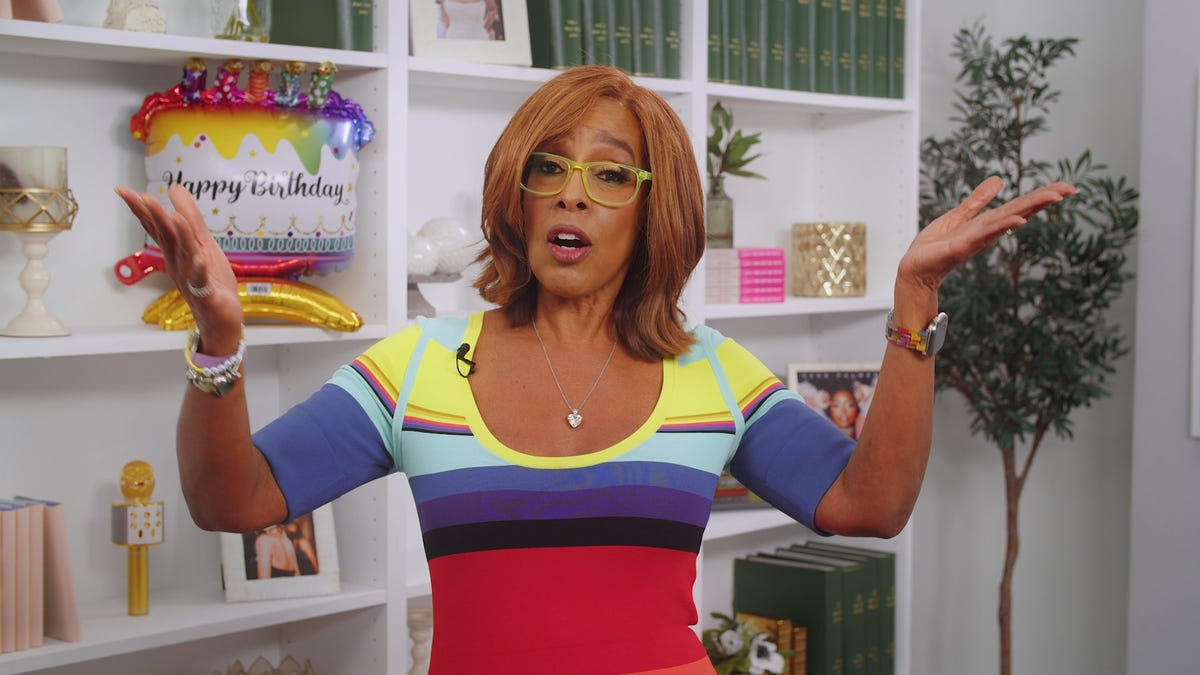
Robin Wall Kimmerer on Thanksgiving

Michelle Obama Announces Her New Book

The Coziest Holiday Mysteries to Read This Season
The Best Cookbooks for Holiday Pies

The Phone Call with Cher that Made Me Want to Be 7
The Best Kids Books on Race and Racism

Hopeful Words for Hard Times
The Perfect Books to Gift Anyone on Your Wish List

Best Books by Children of Celebrities

From Here to the Great Unknown Playlist

10 New Books to Talk About This November

50 Unique Gifts for Book Lovers
Such a Fun Age Satirizes the White Pursuit of Wokeness
Kiley Reid’s debut novel is a funny, fast-paced, empathetic examination of privilege in America.

“A comedy of good intentions” might seem an improbable description of a book that lays bare issues of race and class in contemporary America—but that’s how Kiley Reid aptly sums up her debut novel , Such a Fun Age . As the book begins, there’s certainly not much to laugh about: A young black woman in an upscale grocery store in Philadelphia is accused of kidnapping the white toddler she’s babysitting. A heated exchange with the market’s security guard ensues—all recorded on video—and the woman is allowed to leave only after the child’s father arrives to explain the situation. But any good comedy is about subverting expectations, and this ominous, all-too-familiar instance of racial profiling gives way to a funny, fast-paced social satire about privilege in America, and about, as Reid said in a recent book talk, the “everyday domestic biases that we don’t even know we have.”
At the heart of the novel is Emira Tucker, the babysitter, who is an aimless 25-year-old former English major with a far-from-conventional background. She comes from a family of makers—bookbinders, latte artists, seamstresses, beekeepers—whose proclivity for craftsmanship is “so dogged that it leaned into religious territory.” Her parents and siblings had fallen easily into their chosen fields, but Emira struggled to discover a passion of her own. Waiting “for her hands to find themselves,” she left her small Maryland town for Philadelphia, where she became the first person in her family to attend a four-year college. After graduating, she still feels lost, and “in a quiet panic” about her finances and career trajectory, she takes a part-time babysitting gig.

If Emira is something of an anomaly, her boss, Alix Chamberlain, is a caricature of the working-mom influencer. She’s 33, white, upper-middle class, and obsessed with remaining “relevant”—which to her means slim, plugged into the Manhattan scene, and sought after by Hillary Clinton’s campaign (the novel kicks off in 2015). In college, Alix blogged about luxury products she was sent after writing companies gushing letters on fancy stationery. In her late 20s, she developed an Instagram-based female-empowerment brand called Let Her Speak. With little more than tidy cursive and a B.A. in marketing as credentials, she began appearing on panels to preach a Lean In –like approach to work and love.
Alix prides herself on her progressive status, but it’s only after the night of the grocery-store incident that she vows to “wake the fuck up” and “get to know Emira Tucker.” Even then, her resolution is largely self-serving: She’s worried that Emira might quit. Before long, Alix’s newfound interest spirals into an all-consuming obsession, which Reid deftly deploys to satirize the white pursuit of wokeness. Alix develops feelings for her sitter that aren’t “completely unlike a crush,” and begins trapping Emira as she tries to leave, “referencing conversations that they’d never had. ‘Emira, remind me what you majored in?’ … ‘Did you say that you had any allergies?’” She takes to peering at the notifications on the home screen of Emira’s phone to glean more about her social life and musical tastes, covertly Googling things like “Is Childish Gambino a person or a band?” and “How do you pronounce the name SZA?”
Reid—who spent six years caring for the children of wealthy Manhattanites—is equally comfortable inhabiting Alix’s mind and Emira’s, agilely narrating her novel in a close third-person from the two women’s alternating perspectives. That Alix is not so nimble at cross-racial empathizing is painfully clear. Her fascination with Emira becomes an exercise in narcissistic projection: She fantasizes about Emira discovering personal details that affirm the most progressive (and, she believes, truest) version of herself—“like the fact that one of Alix’s closest friends was also black. That Alix’s new and favorite shoes were from Payless, and only cost eighteen dollars. That Alix had read everything that Toni Morrison had ever written.” Absurd though she (sometimes) knows her approach is, she can’t figure out another way in. Alix’s focus on her own reflection blinds her to any real sense of Emira, or of what’s actually preoccupying her—like the fact that she’s about to be kicked off her parents’ health insurance.
Alix’s myopia isn’t lost on Emira. Writing from the younger woman’s point of view, Reid renders white people whose eagerness to shed their blinkers results in fumbling attempts to identify with black people—as much to burnish their own images as to genuinely connect with others. Alix vies for Emira’s attention with Kelley Copeland, the white guy whom Emira begins dating. Claiming that Alix is using Emira for her own gain, he repeatedly urges Emira to quit her job. But the enlightenment Kelley prides himself on comes in for some gentle skewering. Courting Emira, he arrives at a club with four black friends in tow, looking “like he was being filmed for the intro of an extremely problematic music video,” as Emira drily observes to herself.
Emira never doubts that Kelley’s interest in her (unlike Alix’s) is genuine—but she calls him out when he tries to conscript her in his performative indignation: “You get real fired up when we talk about that night at Market Depot,” she tells him. “But I don’t need you to be mad that it happened. I need you to be mad that it just like … happens.” Getting the security guard fired (his idea) or boycotting the store (Alix makes a big deal of doing that) isn’t her mission. (“Umm, okay,” she says of Alix’s gesture, “the other stores are mad far, but it’s your life.”) Instead, she nudges Kelley toward the quieter work of understanding her, Emira—which means registering that she’s a black woman, but not just a black woman.
The overarching joke of Such a Fun Age is that while the white characters fret over what black people think of them and their progressive values, the black characters are busy getting on with their lives and trying to keep up with one another. Alix obsesses over Emira to the point where she blows off book-draft deadlines and neglects her eldest daughter; for Emira, though, it’s her three close female friends, all college-educated women of color, whose opinions really count. As her peers secure promotions and raises and master’s degrees, Emira fears her best friend among them, Zara, will realize she’s holding the group back and ditch her. Even the Market Depot encounter registers to Emira less as an instance of blatant bigotry than as a “resounding declaration that hissed … This wouldn’t have happened if you had a real fucking job .”
Beneath her comedy of good intentions, Reid—in setting these four women on different class and life trajectories—stages a Millennial bildungsroman that is likely to resonate with 20-something postgraduates scrambling to get launched in just about any American city. Reid could have let Emira belatedly rocket to the same professional heights that her friends achieve—a modern-day happy ending equivalent to marrying them all off—but that would be too tidy. She does, however, grant Emira a new job. It’s full-time, with health benefits.

When you buy a book using a link on this page, we receive a commission. Thank you for supporting The Atlantic.
About the Author

More Stories
Who Made the Oxford English Dictionary ?
A Novel That Probes the Line Between Justice and Revenge
- Newsletters
- Account Activating this button will toggle the display of additional content Account Sign out
The Babysitter and the Influencer
A sharp, empathetic first novel about race, class, careers, and parenthood..
Emira Tucker, one of the two main characters in Kiley Reid’s first novel, Such a Fun Age , is 26 and quietly freaking out. She’s about to age off of her parents’ health insurance, and she’s not sure what to do with her life. She comes from a family of people who knew their vocations early on, but after five years of college, Emira finds herself sharing an apartment in Philadelphia and possessed of merely two marketable skills, typing and child care, neither of which promises much in the way of decent income or benefits. Meanwhile, her girlfriends have started to land juicy promotions at jobs where they wear pencil skirts and have their own offices. She’s dreading the moment that her best friend Zara realizes that Emira is “the reason why the four women didn’t do more things, like take tropical trips on summer Fridays or utilize gel manicure discount days.”
The one quality that distinguishes Emira from millions of other Americans her age (which may or may not be the “fun” age of the novel’s title) is her lack of any social media presence: no Instagram, no Twitter, not even Facebook. That also sets her apart from Alix Chamberlain, who employs Emira to look after her two daughters several days a week. Alix has the sort of vaporous “career” made possible by Instagram influencers and viral YouTube clips. She’s parlayed a surprisingly fruitful hobby of writing letters to companies asking for free stuff “on thick, textured stationery and with dreamy cursive handwriting” into a college application consultation business and “a philosophy about women speaking up and taking communication back to basics” called #LetHerSpeak. (The exquisitely perfect detail of that hashtag should give you a sense of how well-observed this novel is.)
Alix is white, Emira is black, and a summary of the plot of Such a Fun Age must include an incident that occurs in the novel’s first chapter: Emira, who helps the family out one night by taking 3-year-old Briar out of the Chamberlain house during a family emergency, gets hassled by a security guard in a high-end grocery store. A bystander records the incident on his phone, but it doesn’t immediately turn into a viral sensation because Emira demands that he delete the recording. “I don’t mess with the Internet,” she tells him.
If Such a Fun Age were a novel by Jonathan Franzen (which it often resembles in its shrewd, omnivorous, absorbing depiction of the way we live now), Emira would be helplessly plunged into a media circus of ever-escalating absurdity. Reid chooses a quieter, more intricate register. She’s interested in how what feels like an upsetting but peripheral experience to Emira—she knows she should be disturbed by the bigotry, but her primary response is “This wouldn’t have happened to you if you had a real fucking job”—activates a tissue of fantasies in the people around her, particularly the white ones. The bystander with the cellphone, a guy named Kelley, tells her she could get an op-ed in the newspaper out of it. Alix urges her to “sue that entire store. Seeking legal action is completely within your right.”
After the grocery store incident, Alix develops a peculiar crush on her babysitter, yearning for her approval and trying to draw Emira into personal conversations. When that fails to produce the kind of girl talk she shares with her own group of female friends back in New York, Alix resorts to sneaking peeks at the text messages and paused songs on the lock screen of Emira’s phone as it sits in the hallway charger. These offer tantalizing glimpses of nights out at clubs with Zara, as well as “cool and careful” texts with a new man, exchanges of the variety “that only exists at the beginning of something, as you try to exude spontaneity and effortless humor, and space out responses to appear busy and even-keeled.” Emira, it turns out, is dating Kelley, the guy who filmed the grocery store confrontation—even if he did show up at the club with four black friends, looking, to Emira’s eye, “like he was being filmed for the intro of an extremely problematic music video.” “He’s like that one white guy at every black wedding who’s like, super hyped to do the Cupid Shuffle,” Zara opines.
Emira eventually decides that Kelley is OK, but Alix never wins her trust. Like most crushes, Alix’s is more projection than perception. Emira is a regular young person with very understandable concerns; you can’t help but sympathize with her. Alix, on the other hand, is a masterpiece of empathy on Reid’s part, a character who ought to be repellent and yet somehow isn’t. Having decided that Hillary Clinton’s presidential campaign “completely matched her brand” (the novel is set in 2016), Alix frets when she can’t get Clinton’s people to return her calls, so she breastfeeds her daughter while speaking on a panel at an event called “Small Business Femme.” The stunt lands Alix feminist-meme status, a book deal, and a call back from the campaign. So comprehensively staged is Alix’s life that she finds herself obsessively worrying about how Emira would respond to each post in her Instagram feed and wishing that she could tell her babysitter that she’s not a “textbook rich white person,” that she bought her favorite pair of shoes for $18 at Payless, and that she’s read “everything that Toni Morrison had ever written.”
Such a Fun Age
By Kiley Reid. Putnam.
Slate has relationships with various online retailers. If you buy something through our links, Slate may earn an affiliate commission. We update links when possible, but note that deals can expire and all prices are subject to change. All prices were up to date at the time of publication.
Emira does judge Alix, but not for any of the things her boss suddenly feels so self-conscious about. Emira adores Briar, a child whose raspy, insistent voice and endless litany of questions drives Alix bananas. Briar is a particular type of 3-year-old, rarely adequately captured in fiction, whose negotiations with the apparatus of reality can be at once thrilling and poignant to witness. Emira finds the little girl “messy and panicky and thoughtful, constantly struggling with demons of propriety,” and while she knows she needs to look for a better job, the prospect of abandoning her “favorite little human” to a mother who doesn’t really like her—who clearly favors her quieter, sweeter sister—torments her. This conflict has Emira stalled until a (highly improbable) coincidence, rooted in Alix’s high school connection to Kelley, finally forces the babysitter to choose. If the point of the novel were its plot, this contrivance might have ruined it, but the reality Reid summons is so persuasive it’s easy to forgive her for what come to seem like minor absurdities.
Such a Fun Age is blessedly free of preaching, but if Reid has an ethos, it’s attention: the attention Emira pays to who Briar really is, and the attention that Alix fails to pay to Emira, instead spending her time thinking about her. It is the same consideration Reid spends on Alix herself, the careful, curious way she excavates the desperation and loneliness behind Alix’s many performances. The novel is often funny and always acute, but never savage; Reid is too fascinated by how human beings work to tear them apart. All great novelists are great listeners, and Such a Fun Age marks the debut of an extraordinarily gifted one.
Advertisement
Supported by
‘Such a Fun Age,’ by Kiley Reid: An Excerpt
- Share full article
- Apple Books
- Barnes and Noble
- Books-A-Million
When you purchase an independently reviewed book through our site, we earn an affiliate commission.
Chapter One
That night, when Mrs. Chamberlain called, Emira could only piece together the words “. . . take Briar somewhere . . .” and “. . . pay you double.”
In a crowded apartment and across from someone screaming “That’s my song!,” Emira stood next to her girlfriends Zara, Josefa, and Shaunie. It was a Saturday night in September, and there was a little over an hour left of Shaunie’s twenty-sixth birthday. Emira turned the volume up on her phone and asked Mrs. Chamberlain to say it again.
“Is there any way you can take Briar to the grocery store for a bit?” Mrs. Chamberlain said. “I’m so sorry to call. I know it’s late.”
It was almost astonishing that Emira’s daily babysitting job (a place of pricey onesies, colorful stacking toys, baby wipes, and sectioned dinner plates) could interrupt her current nighttime state (loud music, bodycon dresses, lip liner, and red Solo cups). But here was Mrs. Chamberlain, at 10:51 p.m., waiting for Emira to say yes. Under the veil of two strong mixed drinks, the intersection of these spaces almost seemed funny, but what wasn’t funny was Emira’s current bank balance: a total of seventy-nine dollars and sixteen cents. After a night of twenty-dollar entrées, birthday shots, and collective gifts for the birthday girl, Emira Tucker could really use the cash.
[ Return to the review of “Such a Fun Age.” ]
“Hang on,” she said. She set her drink down on a low coffee table and stuck her middle finger into her other ear. “You want me to take Briar right now?”
On the other side of the table, Shaunie placed her head on Josefa’s shoulder and slurred, “Does this mean I’m old now? Is twenty-six old?” Josefa pushed her off and said, “Shaunie, don’t start.” Next to Emira, Zara untwisted her bra strap. She made a disgusted face in Emira’s direction and mouthed, Eww, is that your boss?
“Peter accidentally—we had an incident with a broken window and . . . I just need to get Briar out of the house.” Mrs. Chamberlain’s voice was calm and strangely articulate, as if she were delivering a baby and saying, Okay, mom, it’s time to push . “I’m so sorry to call you this late,” she said. “I just don’t want her to see the police.”
“Oh wow. Okay, but, Mrs. Chamberlain?” Emira sat down at the edge of a couch. Two girls started dancing on the other side of the armrest. The front door of Shaunie’s apartment opened to Emira’s left, and four guys came in yelling, “Ayyeee!”
“Jesus,” Zara said. “All these niggas tryna stunt.”
“I don’t exactly look like a babysitter right now,” Emira warned. “I’m at a friend’s birthday.”
“Oh God. I’m so sorry. You should stay—”
“No no, it’s not like that,” Emira said louder. “I can leave. I’m just letting you know that I’m in heels and I’ve like . . . had a drink or two. Is that okay?”
Baby Catherine, the youngest Chamberlain at five months old, wailed in the receiver. Mrs. Chamberlain said, “Peter, can you please take her?” and then, up close, “Emira, I don’t care what you look like. I’ll pay for your cab here and your cab home.”
Emira slipped her phone into the pouch of her crossbody bag, making sure all of her other belongings were present. When she stood and relayed the news of her early departure to her girlfriends, Josefa said, “You’re leaving to babysit ? Are you fucking kidding me?”
“Guys . . . listen. No one needs to babysit me,” Shaunie informed the group. One of her eyes was open and the other was trying very hard to match.
Josefa wasn’t through asking questions. “What kind of mom asks you to babysit this late?”
Emira didn’t feel like getting into specifics. “I need the cash,” she said. She knew it was highly unlikely, but she added, “I’ll come back if I get done, though.”
Zara nudged her and said, “Imma roll witchyou.”
Emira thought, Oh, thank God . Out loud, she said, “Okay, cool.”
Market Depot sold bone broths, truffle butters, smoothies from a station that was currently dark, and several types of nuts in bulk. The store was bright and empty, and the only open checkout lane was the one for ten items or fewer. Next to a dried-fruit section, Zara bent in her heels and held her dress down to retrieve a box of yogurt-covered raisins. “Umm . . . eight dollars ?” She quickly placed them back on the shelf and stood up. “Gotdamn. This is a rich people grocery store.”
Well , Emira mouthed with the toddler in her arms, this is a rich-people baby .
“I want dis.” Briar reached out with both hands for the copper-colored hoops that hung in Zara’s ears.
Emira inched closer. “How do you ask?”
“Peas I want dis now Mira peas.”
Zara’s mouth dropped open. “Why is her voice always so raspy and cute?”
“Move your braids,” Emira said. “I don’t want her to yank them.”
Zara tossed her long braids—a dozen of them were a whitish blond—over one shoulder and held her earring out to Briar. “Next weekend Imma get twists from that girl my cousin knows. Hi, Miss Briar, you can touch.” Zara’s phone buzzed. She pulled it out of her bag and started typing, leaning into Briar’s little tugs.
Emira asked, “Are they all still there?”
“Ha!” Zara tipped her head back. “Shaunie just threw up in a plant and Josefa is pissed. How long do you have to stay?”
“I don’t know.” Emira set Briar back on the ground. “But homegirl can look at the nuts for hours so it’s whatever.”
“Mira’s makin’ money, Mira’s makin money . . .” Zara danced her way into the frozen-food aisle. Emira and Briar walked behind her as she put her hands on her knees and bounced in the faint reflection in the freezer doors, pastel ice cream logos mirrored on her thighs. Her phone buzzed again. “Ohmygod, I gave my number to that guy at Shaunie’s?” she said, looking at her screen. “He is so thirsty for me, it’s stupid.”
“You dancing.” Briar pointed up at Zara. She put two fingers into her mouth and said, “You . . . you dancing and no music.”
“You want music?” Zara’s thumb began to scroll. “I’ll play something but you gotta dance too.”
“No explicit content, please,” Emira said. “I’ll get fired if she repeats it.”
Zara waved three fingers in Emira’s direction. “I got this I got this.”
Seconds later, Zara’s phone exploded with sound. She flinched, said, “Whoops,” and turned the volume down. Synth filled the aisle, and as Whitney Houston began to sing, Zara began to twist her hips. Briar started to hop, holding her soft white elbows in her hands, and Emira leaned back on a freezer door, boxes of frozen breakfast sausages and waffles shining in waxy cardboard behind her.
Emira joined them as Zara sang the chorus, that she wanted to feel the heat with somebody. She spun Briar around and crisscrossed her chest as another body began to come down the aisle. Emira felt relieved to see a middle-aged woman with short gray hair in sporty leggings and a T‑shirt reading St. Paul’s Pumpkinfest 5K . She looked like she had definitely danced with a child or two at some point in her life, so Emira kept going. The woman put a pint of ice cream into her basket and grinned at the dancing trio. Briar screamed, “You dance like Mama!”
As the last key change of the song started to play, a cart came into the aisle pushed by someone much taller. His shirt read Penn State and his eyes were sleepy and cute, but Emira was too far into the choreography to stop without seeming completely affected. She did the Dougie as she caught bananas in his moving cart. She dusted off her shoulders as he reached for a frozen vegetable medley. When Zara told Briar to take a bow, the man silently clapped four times in their direction before he left the aisle. Emira centered her skirt back onto her hips.
“Dang, you got me sweatin’.” Zara leaned down. “Gimme high five. Yes, girl. That’s it for me.”
Emira said, “You out?”
Zara was back on her phone, typing manically. “Someone just might get it tonight.”
Emira placed her long black hair over one shoulder. “Girl, you do you but that boy is real white.”
Zara shoved her. “It’s 2015, Emira ! Yes we can !”
“Thanks for the cab ride, though. Bye, sister.”
Zara tickled the top of Briar’s head before turning to leave. As her heels ticked toward the front of the store, Market Depot suddenly seemed very white and very still.
“Excuse me, ma’am.” Footsteps followed and when Emira turned around, a gold security badge blinked and glittered in her face. On top it read Public Safety and the bottom curve read Philadelphia .
Briar pointed up at his face. “That,” she said, “is not the mailman.”
Emira swallowed and heard herself say, “Oh, hi.” The man stood in front of her and placed his thumbs in his belt loops, but he did not say hello back.
Emira touched her hair and said, “Are you guys closing or something?” She knew this store would stay open for another forty-five minutes—it stayed open, clean, and stocked until midnight on weekends—but she wanted him to hear the way she could talk. From behind the security guard’s dark sideburns, at the other end of the aisle, Emira saw another face. The gray-haired, athletic-looking woman, who had appeared to be touched by Briar’s dancing, folded her arms over her chest. She’d set her grocery basket down by her feet.
“Ma’am,” the guard said. Emira looked up at his large mouth and small eyes. He looked like the type of person to have a big family, the kind that spends holidays together for the entire day from start to finish, and not the type of person to use ma’am in passing. “It’s very late for someone this small,” he said. “Is this your child?”
“No.” Emira laughed. “I’m her babysitter.”
“Alright, well . . .” he said, “with all due respect, you don’t look like you’ve been babysitting tonight.”
SUCH A FUN AGE By Kiley Reid 320 pp. G.P. Putnam’s Sons. $26. Copyright 2019 © by Kiley Reid Reprinted by permission. All rights reserved.
Explore More in Books
Want to know about the best books to read and the latest news start here..
100 Best Books of the 21st Century: As voted on by 503 novelists, nonfiction writers, poets, critics and other book lovers — with a little help from the staff of The New York Times Book Review.
Cher Turns Back Time: In the first volume of her memoir (which she hasn’t read), the singer and actress explores a difficult childhood, fraught marriage to Sonny Bono and how she found her voice.
Reinventing the Romance Comic: To fully understand Charles Burns’s remarkable graphic novel, “Final Cut,” you have to look closely at the way in which it was rendered .
Turning to ‘Healing Fiction’: Cozy, whimsical novels — often featuring magical cats — that have long been popular in Japan and Korea are taking off globally. Fans say they offer comfort during a chaotic time .
The Book Review Podcast: Each week, top authors and critics talk about the latest news in the literary world. Listen here .

IMAGES
VIDEO
COMMENTS
Such a Fun Age by Kiley Reid. reviewed by Chelsea Bingham. Kiley Reid's debut novel made a splash before being released, with advance praise coming from sources as varied as Jojo Moyes and Lena Waithe, Entertainment Weekly and The New York Times.In January, Such a Fun Age was the featured title for Reese Witherspoon's monthly book club.Covering race, class, job insecurity, and gender ...
Book Reviews 'Such A Fun Age' Is A Complex, Layered Page-Turner. December 28, 2019 7:00 AM ET. By . Ilana Masad ... Such a Fun Age, works on so many levels it makes me giddy — and, what's better ...
The Brat Pack meets The Bacchae in this precious, way-too-long, and utterly unsuspenseful town-and-gown murder tale. A bunch of ever-so-mandarin college kids in a small Vermont school are the eager epigones of an aloof classics professor, and in their exclusivity and snobbishness and eagerness to please their teacher, they are moved to try to enact Dionysian frenzies in the woods.
Such a Fun Age is a much-hyped debut novel from Kiley Reid, and it's definitely going to be *the* book club book of 2020. It's extremely readable and plot-forward while tackling things like ...
Lauren Christensen is an editor at the Book Review. SUCH A FUN AGE By Kiley Reid 320 pp. G.P. Putnam's Sons. $26. A version of this article appears in print on , Page 14 of the Sunday Book ...
Reid's aptitude for triggering awkward dinner table conversations may be a turn-off for some readers, but I think most will find the book an inimitable hit. Such a Fun Age centers Emira Tucker, a recent college Temple University graduate who, like most recent college grads (me, included), finds herself with vague career plans and limited ...
In the first scene of Such a Fun Age (Putnam), Kiley Reid's acerbic send-up of identity politics, 25-year-old babysitter Emira is summoned from her friend's booze-soaked birthday bash by her boss, a wealthy white woman, to pick up her 2-year-old charge while the girl's mother deals with a crisis at home. Emira brings the toddler, Briar, whom she's grown fond of, to an upscale grocery ...
The overarching joke of Such a Fun Age is that while the white characters fret over what black people think of them and their progressive values, the black characters are busy getting on with ...
Alix is white, Emira is black, and a summary of the plot of Such a Fun Age must include an incident that occurs in the novel's first chapter: Emira, who helps the family out one night by taking ...
100 Best Books of the 21st Century: As voted on by 503 novelists, nonfiction writers, poets, critics and other book lovers — with a little help from the staff of The New York Times Book Review.